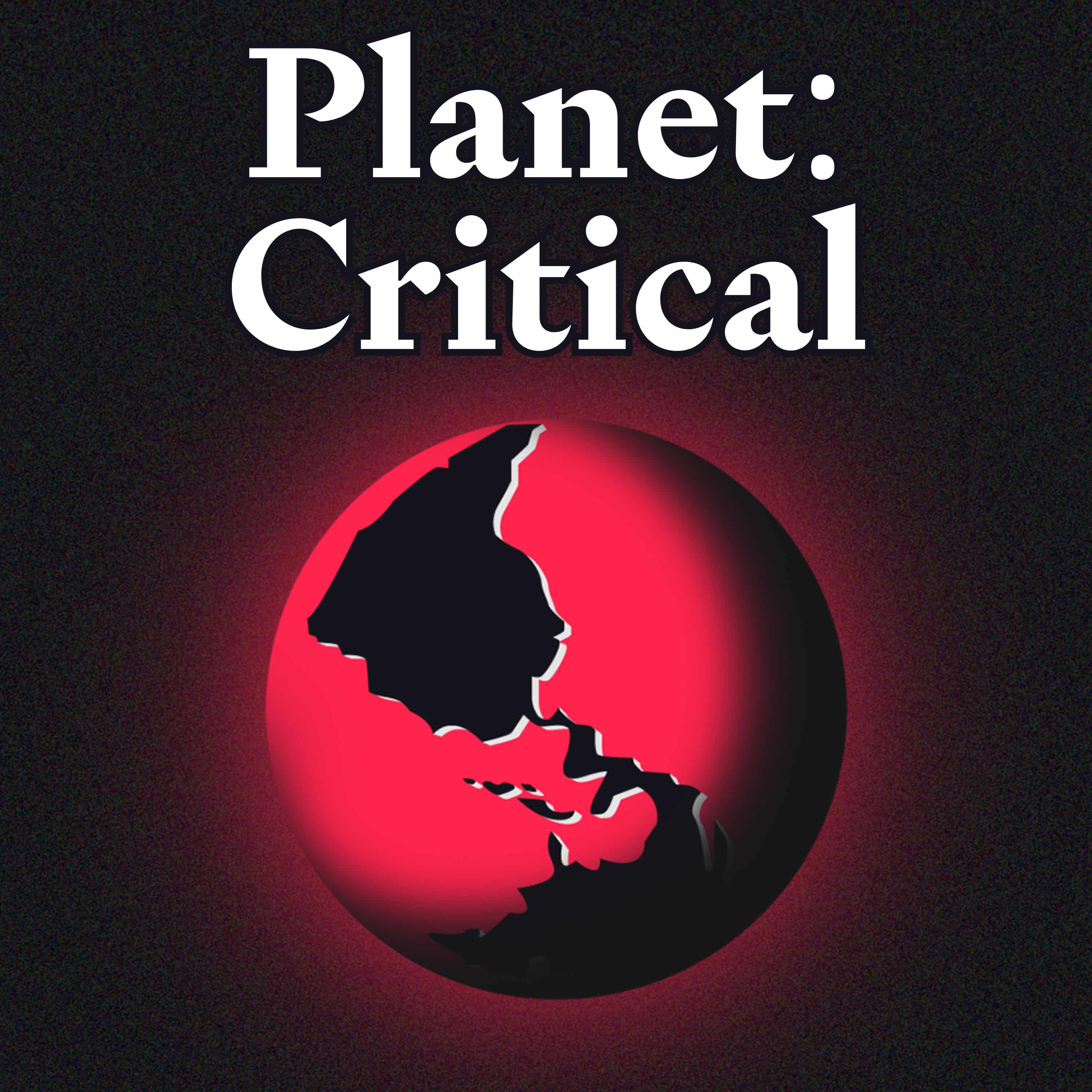

Planet: Critical
Rachel Donald
Planet: Critical is the podcast for a world in crisis. We face severe climate, energy, economic and political breakdown. Journalist Rachel Donald interviews those confronting the crisis, revealing what's really going on—and what needs to be done. planetcritical.substack.com
Episodes
Mentioned books

37 snips
Oct 31, 2024 • 1h 48min
The Renewables Solution | Auke Hoekstra
Auke Hoekstra, Director of the NEON Research Program at Eindhoven University of Technology, dives deep into the potential of renewable energy. He argues that renewables can transform our energy system, reducing harms and promoting equity. The discussion tackles the realities of energy density, land use, and the socio-political challenges that accompany the transition. Auke highlights the importance of collaboration, the dangers of doomism, and the ethical implications of energy solutions, urging listeners to embrace hope and complexity in the pursuit of sustainability.

Oct 24, 2024 • 55min
Nuclear and Justice | Jessica Lovering
Jessica Lovering, co-founder of the Good Energy Collective, dives into the pressing question: if not nuclear, then what? She argues that nuclear energy is essential for lifting a billion people out of energy poverty. Discussing historical and regulatory challenges, she highlights the potential of small modular reactors and emphasizes nuclear's role in addressing climate change and ensuring energy equity. Lovering also touches on community consent, waste management, and the geopolitical implications of nuclear energy as we navigate an unstable world.

Oct 17, 2024 • 38min
Decarbonising the War Machine | Sherri Goodman
Sherri Goodman, Secretary General of the International Military Council on Climate and Security, is a trailblazer in climate security. She reveals how the U.S. military is leading the charge in decarbonization efforts, implementing sustainable technologies like hybrid vehicles and micro grids. Goodman discusses the clash between climate action and military strategy, and debates the sustainability of such initiatives given the broader drivers of conflict. She emphasizes the military's role in safeguarding national security amidst resource scarcity and climate crises.

10 snips
Oct 10, 2024 • 59min
How Net Zero Killed 1.5 | James Dyke
James Dyke, an Earth system scientist and climate policy expert, returns to discuss the grim reality of our climate future. He argues that the Paris Agreement is effectively dead due to misguided reliance on carbon removal technologies. Dyke critiques net zero policies, emphasizing their failure to address systemic issues. He warns of the dangers of setting the two-degree target, pushed by fossil fuel interests, and calls for urgent solutions focusing on sustainability and equity. The conversation highlights the geopolitical struggles and the necessity for a just energy transition.

16 snips
Oct 3, 2024 • 1h 6min
The Plastic Crisis | Jane van Dis
Jane van Dis, a medical doctor and co-founder of Healthcare Without Harm, dives into the alarming impact of plastic on human health and the environment. She discusses the link between plastic exposure and serious health conditions, including its role in diseases like cancer and heart issues. Examining the collusion between the petrochemical industry and government policies, she highlights systemic failures in addressing this crisis. Jane also emphasizes the healthcare sector's own plastic waste problem and calls for advocacy to protect both public health and our planet.

10 snips
Sep 26, 2024 • 56min
The Green Washing Machine | Veronica Bates Kassatly
Veronica Bates Kassatly, an economist specializing in sustainable fashion, reveals the pitfalls of self-regulation in the industry. She discusses how the fashion world manipulates sustainability metrics, branding polyesters as eco-friendly while masking their true environmental impact. The conversation delves into the flaws in current methodologies, the interplay between fashion policies and global trade, and the urgent need for genuine sustainability measures. Veronica calls for an inclusive dialogue that prioritizes both environmental and social justice.

58 snips
Sep 19, 2024 • 1h 31min
The Energy Collapse | Louis Arnoux
In this discussion, Louis Arnoux, a seasoned scientist and managing director of Fourth Transition, dives into the looming energy collapse predicted by 2030. He explains how our current energy systems are battling thermodynamic inefficiencies while highlighting the economic pressures fueling this crisis. Louis critiques decarbonization efforts and unveils three thermodynamic traps that threaten sustainability. He also envisions a decentralized energy revolution powered by local solutions, emphasizing the need for a system that mimics nature's efficiency.

Sep 10, 2024 • 1h 24min
E-Topia | Deep Dhillon
In this engaging discussion, A.I. technologist Deep Dhillon, cofounder of Xyonix, shares his insights on the rapid advancements in artificial intelligence and their societal implications. He emphasizes the importance of ethical regulation and the impact of technology on mental health and democracy. They explore challenges like deepfake technology and its authenticity issues, as well as the systemic inequalities in healthcare exacerbated by A.I. Deep envisions a collaborative future that ensures equitable access to technological benefits.

21 snips
Sep 5, 2024 • 46min
The Rights of Nature | Mongabay Newscast
Viktoria Kahui, an environmental and ecological economist at the University of Otago, dives deep into the fascinating concepts of rights of nature and legal personhood for ecosystems. She discusses how these innovative legal frameworks are being trialed globally, especially in Ecuador, to combat biodiversity loss and promote Indigenous reconciliation. Kahui emphasizes the need for further research on their effectiveness and reflects on the balance between human health needs and ecological preservation, sparking a thought-provoking debate on our relationship with nature.

9 snips
Aug 29, 2024 • 60min
Sick People or Sick Society? | Steffi Bednarek
Steffi Bednarek, a climate psychotherapist, tackles anxiety born from climate grief. She argues that the mental health crisis reflects deeper societal dysfunction rather than individual failings. The discussion challenges the psychology industry’s focus on symptom-free living, advocating for a broader view of mental health linked to systemic issues. Bednarek highlights the necessity of resilience and empathy, particularly in the context of women's roles and interconnectedness. The episode also calls for communal grieving and mindfulness around death in modern society.


